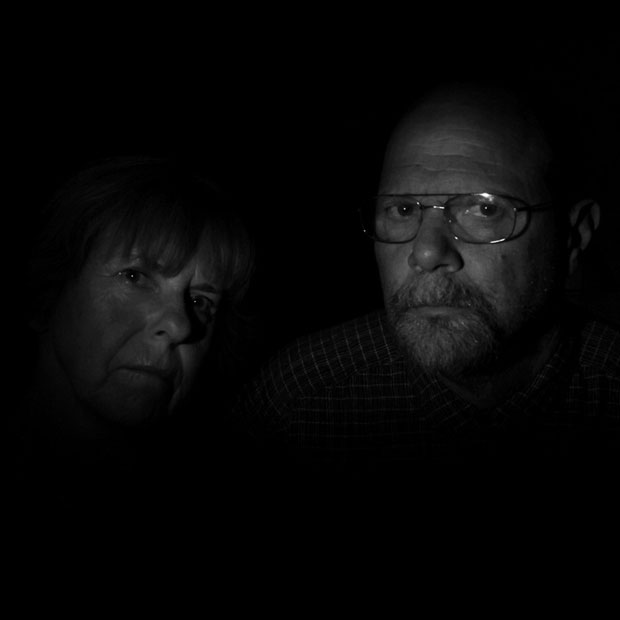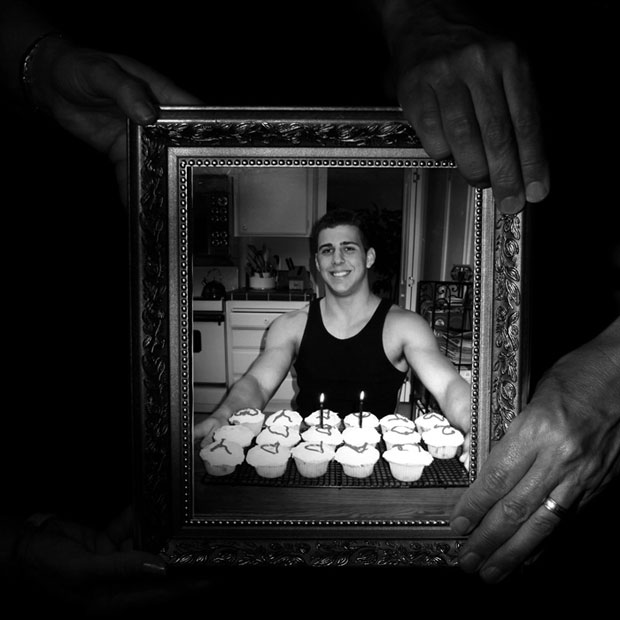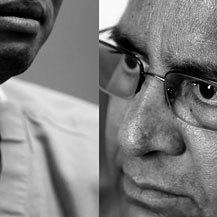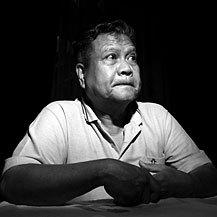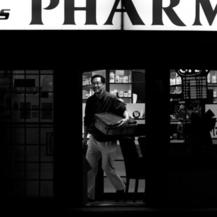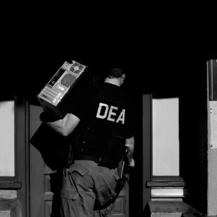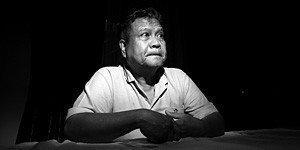Dying for relief | A Times Investigation
Joey Rovero's quest for pills ended at Pacifica Pharmacy.
It was the same for Naythan Kenney,
Matt Stavron and Joseph Gomez.
All four were patients of a Rowland Heights
physician who was a prolific prescriber of narcotic
painkillers and other addictive drugs. To get their fix,
they needed more than a piece of paper.
They needed a pharmacist willing to dispense the drugs,
and at Pacifica they found one.
December 20, 2012
All four died of drug overdoses after filling prescriptions at the tiny pharmacy in Huntington Beach, court and coroners' records show.
Pacifica's owner, Thang Q. "Frank" Tran, sold pain medications in large quantities. Particularly popular with his customers were high-dose, 80-milligram tablets of OxyContin. Tran filled nearly twice as many of those prescriptions as did nearby Walgreens, CVS and Sav-On pharmacies combined, according to state records.
Many of his customers traveled long distances and paid cash. Rovero drove more than 350 miles from Arizona State University in Tempe to get his prescriptions in Rowland Heights and then 33 more miles to the pharmacy.
"I thought to myself, 'Why in the world would these kids go that much farther out of their way?' " said April Rovero, whose son was 21 when he died. "Someone must have told them to go there."
Pharmacists are supposed to be a last line of defense against misuse of prescription medications. By law, they are required to scrutinize prescriptions, size up customers and refuse to dispense a drug when they suspect the patient has no medical need for it.

Thang Q. Tran is appealing the revocation of his license. The state Board of Pharmacy found in April that he had improperly dispensed narcotics at Pacifica Pharmacy in Huntington Beach. (Liz O. Baylen / Los Angeles Times)
Some, however, provide massive amounts of painkillers and anti-anxiety drugs to addicts and dealers with no questions asked, according to state records, regulators and law enforcement officials.
Rogue pharmacists are key enablers of drug abuse and an important source of supply for the illegal market.
State officials who license and oversee pharmacies are overmatched by the scale of the problem.
Prescription drug abuse has increased sharply over the last decade, fueling a doubling of drug fatalities nationwide.
California's 42,000 pharmacists filled 318 million prescriptions last year.
Those for OxyContin, Dilaudid and other potent painkillers have increased 52% over the last five years, according to a review of prescription data collected by the state. The total dosage dispensed by pharmacies has also grown: by nearly 50%, the data show.
The task of identifying careless or corrupt pharmacists and initiating disciplinary action falls to 37 investigators for the California Board of Pharmacy.
"We are struggling to keep up because there are more pharmacies, more licensees, more places to go," said Virginia Herold, the agency's executive director. "We work really hard. But there's a limit to what we can do."
The board has added investigators in recent years. Even so, "we do have some pharmacies that seem to be able to help deliver unconscionable quantities of drugs to patients," Herold said.
It doesn't help that illegal dispensing is a low priority for law enforcement agencies. Criminal prosecutions are rare and penalties typically light.
Rogue pharmacists have a symbiotic relationship with physicians who prescribe drugs for addicts. Neither can flourish without the other.
Their cooperation is usually unplanned. Through trial and error, addicts whose doctor writes prescriptions for narcotics will discover a pharmacist willing to dispense the drugs without the appropriate scrutiny. Then word gets around.
Both pharmacist and doctor can reap a windfall by writing and filling large numbers of prescriptions for cash.
High-volume dispensing of addictive drugs was par for the course at Burbank Medical Pharmacy, according to board records.
In a single day — Dec. 3, 2007 — the pharmacy filled 85 prescriptions for pain medications, according to a board accusation. None of the doctors who wrote the prescriptions were from the Burbank area, nor were any of the patients, the complaint states. Both are signs that a pharmacy is catering to addicts, according to regulators and law enforcement officials.
Burbank Medical also dispensed painkillers in volume to a drug dealer who claimed to be picking them up for patients too sick to do so, according to the board accusation and court files. The dealer was convicted in a prescription drug fraud scheme that prosecutors said generated millions of dollars.
Pharmacist Nancy Cha and the pharmacy are accused by the board of failing to ensure that the drugs they dispensed were for patients with legitimate need. They have not been implicated in the drug dealer's fraud scheme.
The pharmacy also failed to account for 12,610 OxyContin tablets with a street value of more than $1 million, the board said.
Cha's attorney, Richard Moss, said she was a well-meaning pharmacist who naively believed she was helping people in need.
"This was a real wake-up call," Moss said of the board accusation. At a recent hearing on the case, Moss presented a defense that he said was largely "explanation and mitigation."
The 13-member board will decide whether to revoke Cha's license or take other disciplinary action.
In recent years, the board has taken disciplinary action only infrequently against pharmacists for filling customers' prescriptions without ensuring that they were for legitimate medical needs.
Since 2006, five pharmacists have had their licenses revoked on those grounds, according to board records. Twelve others surrendered their licenses, and 22 were placed on probation. Over the same period, 23 California pharmacies have been sanctioned for similar offenses.
Derrick Jones, an agent for the U.S. Drug Enforcement Administration who oversees a prescription drug task force, said corrupt or inattentive pharmacists are a boon to addicts and dealers.
"If you've got a 22-year-old kid coming in with a prescription for enough Oxy to put a horse down, that's got to raise some red flags with a good pharmacist," Jones said.
"When those questions don't get asked, that's when the floodgates open. You'll have people coming from L.A. all the way down to Orange County because they know they can get that prescription filled without any questions."
Andrew Snay was adrift. The 22-year-old bounced from job to job. He worked at Home Depot, as a Kirby vacuum cleaner salesman and as a telemarketer.
The one constant in his life, his mother said, was his addiction to pills.
At one point, he used a shoulder injury as a pretext to obtain pain medications, his mother said. "He was just getting high," she said.
He went to great lengths to get pills — literally.
He would travel 40 miles from his home in Thousand Oaks to the office of Dr. Bernard Bass, a general practitioner in North Hollywood who treated people for chronic pain. Prescription in hand, he would go five more miles to Jay Scott Drugs in Burbank.
Bass would prescribe — and Jay Scott Drugs would dispense — the painkiller Norco, the anti-anxiety drug Xanax and a muscle relaxant called Soma, according to pharmacy board records. Together, they form a drug cocktail popular with addicts.
In a 14-month period, Snay filled 89 prescriptions at Jay Scott Drugs, according to a board accusation. Snay filled two of them — for hydrocodone and Xanax — two days before he died of an overdose on March 20, 2008, records show.
An empty bottle of painkillers with the pharmacy's label was at his bedside.
Shortly after his death, Snay's mother, Kim, confronted Albert Daher, the supervising pharmacist and owner of Jay Scott Drugs, according to her testimony at a pharmacy board hearing. She asked for a record of the drugs her son had purchased. Daher gave her a printout, then asked for it back moments later, she said.
She said she refused and walked out.
Scanning the document, Snay saw that her son was able to obtain 400 pills in one four-day period in 2007, the year before he died.
"I almost fainted," she said.
Snay and three other people from Ventura County, ages 21, 25 and 31, died of overdoses in the span of a month in 2008 after filling prescriptions at Jay Scott Drugs, according to the board accusation.

Binders of evidence fill the prosecutors' table at a hearing on Jay Scott Drugs (Liz O. Baylen / Los Angeles Times)
All four were patients of Bass, who pleaded guilty in May 2009 to illegally prescribing painkillers and other addictive drugs. Bass, 62, died of a heart attack a month later.
Over a 19-month period, Jay Scott Drugs filled an average of 68 prescriptions a day written by Bass for painkillers and other commonly abused drugs, the board said.
On a single day — Sept. 7, 2007 — 93 out of 132 prescriptions for controlled substances filled at the pharmacy were for patients of Bass.
In July of the same year, Jay Scott's wholesaler alerted the pharmacy board that the drugstore was ordering more than 100,000 hydrocodone pills a month, records show. A board expert said at the hearing that 100,000 pills was a "huge amount" for a pharmacy of that size.
In all, the pharmacy dispensed $1.7 million worth of drugs prescribed by Bass, according to a board investigator's report.
Jay Scott Drugs also catered to patients of Dr. Masoud Bamdad when others would not fill his prescriptions, according to board records and testimony.
Bamdad's patients routinely drove from his office in San Fernando to Jay Scott Drugs, 11 miles away. The pharmacy filled 1,357 prescriptions for Bamdad's patients over 18 months. Nearly three-fourths were for painkillers and other controlled substances.
Bamdad is serving a 25-year sentence in federal prison for selling prescriptions to addicts, one of whom died of an overdose at age 23 after filling a prescription for Xanax at Jay Scott Drugs.
The pharmacy board is seeking to revoke or suspend the licenses of Daher and two colleagues and the pharmacy's operating permit.
In an interview, Daher denied any wrongdoing and said he and his colleagues are "extremely vigilant" in dispensing narcotics. He said he looked forward to mounting a defense against the board accusation when hearings in the case resume next summer.

Albert Daher, right, talks with attorney Daniel R. Friedenthal at his hearing before the state Board of Pharmacy in November. Daher, owner of Jay Scott Drugs, denies any wrongdoing. (Liz O. Baylen / Los Angeles Times)
"I want to clear my name," he said.
Daher said he spoke to Bass after his patients began showing up at the pharmacy with prescriptions for narcotics. He said Bass seemed knowledgeable and compassionate and told him his patients, including the younger ones, suffered from pain and needed the medications.
Daher said that an investigator with the Medical Board of California, which licenses and oversees doctors, visited the pharmacy in July 2007 to obtain records on two of Bass' patients. Daher said he asked whether he should stop filling Bass' prescriptions. Daher said he asked the same question of pharmacy board officials when they visited for a routine inspection.
In neither case did the regulators inform him of the allegations against Bass or tell him to stop filling the doctor's prescriptions, Daher said.
"They should have been more forthcoming," he said.
The pharmacy board said it could not comment on a pending case. The medical board also declined to comment.
Daher said that as soon as he learned of overdose deaths among Bass' patients, he stopped dispensing drugs to patients with chronic pain.
Regarding Bamdad, Daher said that by all indications the doctor was a responsible prescriber, and that he felt betrayed when he learned otherwise.
Brian Spahr, a financial planner in Huntington Beach, would occasionally look out the window of his office at the parking lot he shared with Pacifica Pharmacy. Young men would congregate there after walking out of the pharmacy. Some would leap into the air and exchange high-fives.
Once, Spahr saw Pacifica customers spread cash across the dashboard of a car. On another occasion, he saw "money and prescriptions changing hands," he said.

Law enforcement officers escort Dr. Hsiu-Ying "Lisa" Tseng out of her Rowland Heights clinic in March 2012 (Liz O. Baylen / Los Angeles Times)
Spahr complained first to Huntington Beach police, then to the pharmacy board.
A board investigator ran Pacifica's name through a state database and found that the pharmacy was filling an unusually high number of prescriptions for OxyContin and other potent drugs written by a Rowland Heights physician identified as "Dr. T," according to an accusation filed by the board.
"Dr. T" is Lisa Tseng, who has since been charged with second-degree murder in the overdose deaths of three of her patients.
The investigator studied files on 18 of Tseng's patients who filled prescriptions for 80-milligram doses of OxyContin at Pacifica Pharmacy. He found that 15 lived 35 miles or more from Tseng's office in Rowland Heights, and 15 lived at least 20 miles from the pharmacy.
Brandon Barnes, of Laguna Niguel, described in court how he went to Tseng's office with some friends in 2009 to get prescriptions for narcotics. Barnes, then 19, said he told Tseng his hand hurt from a skateboarding injury. But his real motive was to get high.
Testifying at Tseng's preliminary hearing, Barnes said the doctor gave him prescriptions for Xanax, Soma and the narcotic painkiller Opana. He said one of his friends told him they would have to go to "a special kind of hole-in-the wall pharmacy" to get the prescriptions filled.
The pharmacy was Pacifica, and he and his friends paid for the drugs with $800 in cash, Barnes testified.
About this story
This is the third in a series of occasional stories on the epidemic of prescription drug deaths. For this article, reporters Lisa Girion, Scott Glover and Hailey Branson-Potts examined pharmacy board records, coroners’ files and court documents, and interviewed medical experts, law enforcement officials and relatives of those who died from overdoses.
Times photojournalist Liz O. Baylen created still images and videos.
Stephanie Ferrell designed the web presentation and Armand Emamdjomeh created the interactivity.
Lisa Gomez questioned how Pacifica could have filled Tseng's prescription for her son, Joseph. He went on painkillers after surgery to remove a cyst from his tailbone, and he became addicted, she said. Once an avid snowboarder and rugby player, he became red-eyed and listless under the influence of pills.
"I'm sure when he got these prescriptions filled, he wasn't looking good," Gomez said in an interview. "It's a pretty distinct look."
Joseph Gomez went to Pacifica on Aug. 26, 2009, to fill a prescription for Xanax and Soma, coroner records show. He fatally overdosed two days later on a combination of drugs, including the active ingredient in Xanax, the records show. He was 26.
At a board hearing earlier this year, pharmacist Thang Tran repeatedly invoked his 5th Amendment right against self-incrimination.
The board found "clear and convincing evidence" that Tran had dispensed narcotics improperly and revoked his license and Pacifica's permit in April. He has filed an appeal in Superior Court.
A sign on the door of Pacifica's shuttered storefront on Beach Boulevard directs customers to a pharmacy called TLC Xpress in neighboring Fountain Valley.
When reporters visited the pharmacy last week, Tran was behind the counter. When they asked to speak to him, he ducked into a back room and refused to come out.
